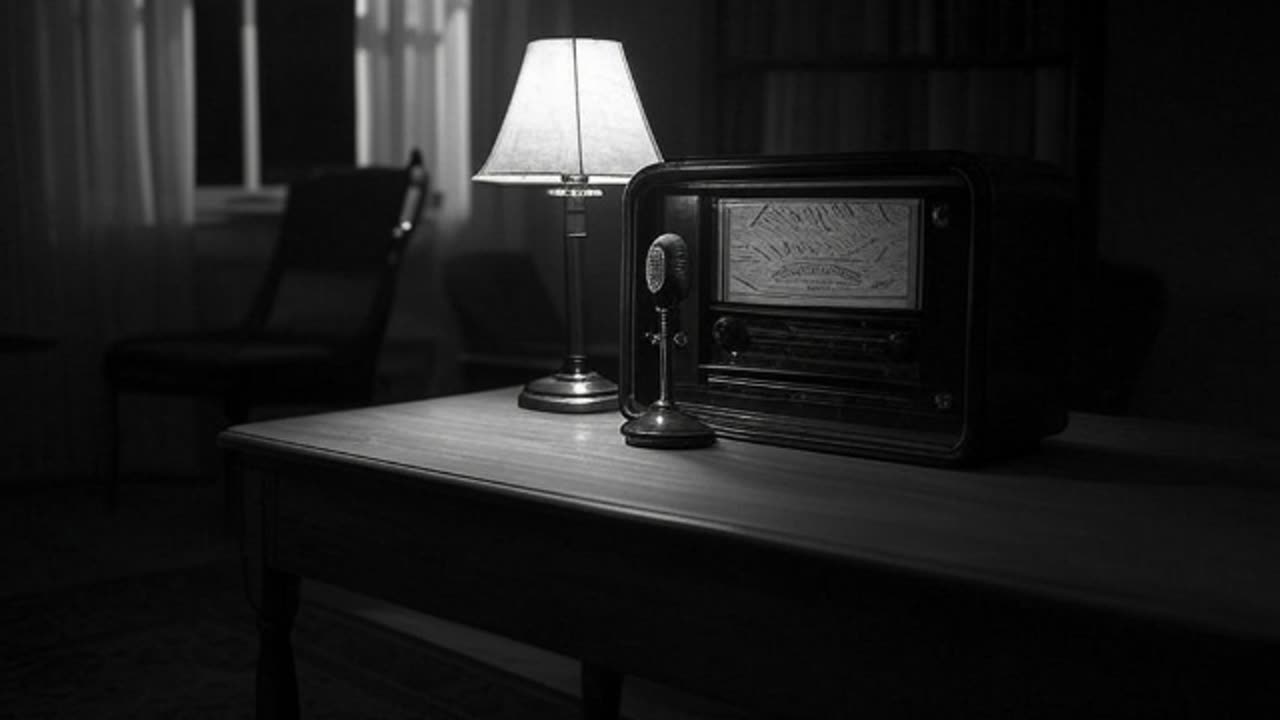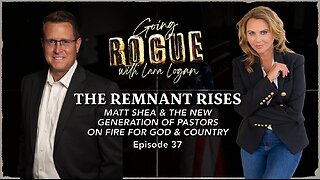Premium Only Content

Lights Out June 23, 1937 - Happy Ending
"Happy Ending," an episode of the radio horror series Lights Out, aired on June 23, 1937, over the NBC Red Network. Written by Arch Oboler, this chilling tale subverts the notion of a conventional happy resolution with a dark, supernatural twist. The story revolves around a seemingly idyllic scenario—possibly a reunited couple or a fortuitous event—that quickly descends into horror. As the characters revel in their apparent good fortune, an eerie force reveals a sinister truth: their "happy ending" is a facade orchestrated by malevolent entities or a cursed fate. The episode builds suspense through unsettling sound effects and Oboler’s signature psychological horror, culminating in a shocking revelation that leaves listeners questioning the nature of happiness. True to Lights Out’s style, the narrative blends macabre irony with visceral terror, making it a memorable entry in the series.
Cast and Crew
Cast:
Lead actors: Likely included Boris Karloff, Mercedes McCambridge, or other NBC radio regulars (specific actors for this episode are not documented, but these were frequent Lights Out performers during the period)
Supporting roles: Filled by NBC stock players, possibly including Lou Merrill or Betty Winkler
Announcer: Not explicitly credited, likely an NBC staff announcer
Crew:
Writer/Director: Arch Oboler (primary creative force behind Lights Out during this era)
Producer: NBC Red Network, possibly overseen by Willis Cooper (though Oboler was taking over by 1937)
Music: NBC house orchestra, likely arranged by Leith Stevens or another network composer
Sound Effects: NBC sound effects team, renowned for innovative techniques under Oboler’s direction (e.g., using celery for bone-crunching sounds)
Note: Exact cast and crew details for this specific episode are not fully documented in available sources. The above is based on Lights Out’s standard production team and recurring actors during the 1937 season.
News in the United States (Week of June 23, 1937)
Economic Struggles: The U.S. was recovering from the Great Depression, but unemployment remained high at around 14%. President Franklin D. Roosevelt’s New Deal programs, including the Works Progress Administration, continued to provide jobs through infrastructure projects.
Labor Tensions: The Steel Strike of 1937, led by the Congress of Industrial Organizations, escalated. On June 19, violence in Ohio left two strikers dead during clashes with police at Republic Steel, highlighting labor unrest.
Aviation Mystery: Amelia Earhart was preparing for her around-the-world flight. By late June, she was in Southeast Asia, nearing the Pacific leg. Her disappearance on July 2, 1937, was days away, though not yet headline news.
Supreme Court Shift: The Senate debated Roosevelt’s court-packing plan to expand the Supreme Court, which faced opposition. The plan was losing traction, but Justice Willis Van Devanter’s retirement announcement earlier in 1937 fueled discussions.
Cultural Note: The film A Day at the Races by the Marx Brothers was a box-office hit, offering comedic relief amid economic woes.
News in the World (Week of June 23, 1937)
Spanish Civil War: The conflict intensified, with Franco’s Nationalists advancing in northern Spain. The Battle of Bilbao ended on June 19 with a Nationalist victory, weakening Republican forces. Foreign involvement, including German and Italian support, was escalating.
Sino-Japanese Tensions: Japan’s aggression in China was mounting. Skirmishes along the Manchurian border foreshadowed the Second Sino-Japanese War, which erupted with the Marco Polo Bridge Incident on July 7, 1937.
Nazi Germany: Adolf Hitler consolidated power, with the Nazi regime expanding its propaganda and military buildup. The Gestapo cracked down on dissent, and preparations for future territorial expansion were underway.
Soviet Purges: Stalin’s Great Purge continued, with mass arrests and executions of military officers, intellectuals, and perceived enemies. The purge of Red Army leadership, including Marshal Mikhail Tukhachevsky (executed June 12, 1937), weakened Soviet defenses.
British Monarchy: King George VI, recently crowned on May 12, 1937, was navigating Britain’s response to European tensions. Prime Minister Neville Chamberlain began shaping appeasement policies toward Germany.
-
 1:33:51
1:33:51
Steve-O's Wild Ride! Podcast
1 day ago $1.44 earnedJohn C. Reilly's Surprising Connection To Jackass (And Beef With Weeman!)
38.1K6 -
 LIVE
LIVE
StoneMountain64
4 hours agoBattlefield 6 News and Extraction Gaming
117 watching -
 2:13:30
2:13:30
Side Scrollers Podcast
7 hours agoUK Introduces MANDATORY Digital ID + Dallas ICE Shooting BLAMED on Gaming + More | Side Scrollers
104K8 -
 1:54:17
1:54:17
The Charlie Kirk Show
5 hours agoCharlie's Last Trip + What's Next + AMA | Erika Kirk, Mikey McCoy | 9.26.2025
294K245 -
 1:02:53
1:02:53
The Quartering
4 hours agoMAGA Kid Kidnapped, Hasan Piker Meltdown, Vivek Fights For Alex Jones & More
138K52 -
 32:49
32:49
Simply Bitcoin
1 day ago $1.83 earnedBitcoin Crucible w/ Alex Stanczyk | EP 1
41.7K1 -
 1:57:37
1:57:37
Tucker Carlson
4 hours agoCharlie Sheen’s Craziest Hollywood Stories and Why He Refuses to Believe the Official Story of 9/11
68.7K63 -
 1:33:12
1:33:12
Sean Unpaved
5 hours agoRyder Cup Tee-Off, CFB's Week 5 Madness, & the NFL's Win-or-Wilt Week 4
34.7K1 -
 2:07:01
2:07:01
The Culture War with Tim Pool
6 hours agoWho Really Killed Charlie Kirk? Truth Behind Kirk Assassination | The Culture War with Tim Pool
250K239 -
 1:25:28
1:25:28
Lara Logan
16 hours agoTHE REMNANT RISES: Matt Shea & The New Generation of Pastors on Fire for God & Country | Episode 37
44.6K4